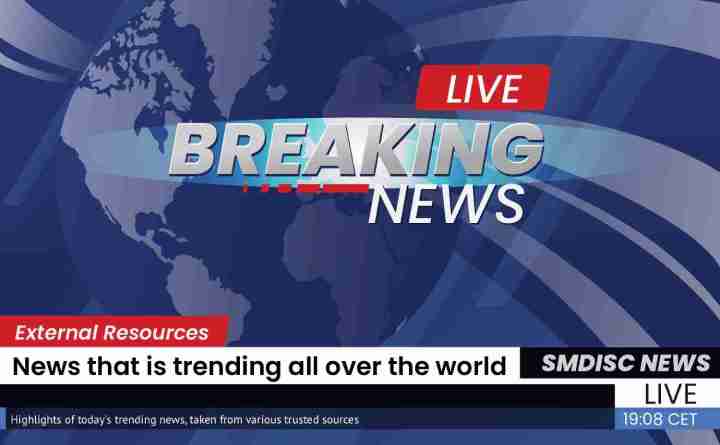On October 23, 2025, the European Union formally approved its 19th sanctions package against Russia, which for the first time includes a phased ban on imports of Russian liquefied natural gas (LNG) with short-term contracts ending in six months and long-term ones by January 1, 2027.
The measures also expand restrictions on Russia’s energy, shipping, financial sectors, sanctioning banks, crypto platforms, shadow-fleet oil tankers, and limiting movements of Russian diplomats across the EU.
Looking for the full news? Search more here →
Analysis & Opinion
This latest package is a significant escalation of the EU’s strategy against Russia’s war in Ukraine. By targeting LNG imports a sector Russia has increasingly used to offset lost revenue from pipeline gas and oil the EU is striking deeper into Moscow’s revenue base and signalling that energy dependence is no longer sacrosanct.
However, the move carries risk and complexity. For one, energy markets will feel the strain many EU member states still rely on Russian gas or LNG, and transitioning away quickly will impose higher costs on consumers and industry. Slovakia’s earlier veto threat (and its dependence on Russian energy) illustrates how internal EU politics can complicate implementation.
On the strategic side, the measure strengthens Western cohesion: aligning EU policy more closely with recent U.S. sanctions shows the bloc is willing to act in concert, which may amplify pressure on Russia. But practical enforcement will be key without rigorous monitoring, Russia may divert more exports outside the West, weakening the measure’s impact.
In my view, the EU should now complement the sanctions with:
- A clear roadmap for energy diversification and supply security for member states (especially those heavily dependent on Russia).
- Financial support mechanisms to cushion industries and households from price shocks.
- Diplomatic efforts to ensure third-country buyers do not become a back-door for re-export of Russian energy.
If executed well, this sanctions package could mark a turning point; if not, it may simply shift the battleground rather than end the revenue streams.
In the end, the European Union’s 19th sanctions package represents more than just another policy step it marks a defining moment in Europe’s long struggle to balance moral responsibility with energy dependence. By cutting off Russian LNG imports, the EU is signaling that its commitment to Ukraine and to global stability outweighs short-term economic comfort.
Still, the true test lies ahead: whether Europe can sustain unity, manage rising costs, and accelerate its transition toward cleaner, independent energy sources. What happens in the next few months will determine if these sanctions become a lasting blow to Moscow’s war economy or just another turning point in a prolonged geopolitical standoff.
Who Will Feel the Impact of the EU’s 19th Sanctions Package?
The European Union’s latest sanctions against Russia especially the ban on liquefied natural gas (LNG) imports will reverberate far beyond Moscow. While the move is designed to weaken Russia’s war economy, its effects will spread across governments, businesses, and ordinary citizens throughout Europe and beyond. Here are the main groups likely to feel the strongest impact and what they should do next.
1. Russian Energy Companies (Novatek, Gazprom, Rosneft)
Direct financial loss from losing access to the lucrative European LNG market.
Why: The EU has been one of their biggest energy customers, and this ban strikes at the heart of Russia’s export revenue.
What They Should Do: Seek new markets in Asia and strengthen domestic consumption strategies, though long-term damage is likely inevitable.
2. European Energy Importers and Utility Companies
Face higher costs and supply shortages during the transition away from Russian LNG.
Why: Some EU members still rely heavily on Russian gas for industrial and winter heating needs.
What They Should Do: Secure new LNG contracts with the U.S., Qatar, and Norway, and accelerate renewable energy investments to reduce vulnerability.
3. European Households and Consumers
Rising energy bills and potential short-term inflation.
Why: The ban limits supply and increases competition for alternative sources.
What They Should Do: Adopt energy-saving habits, and governments should provide subsidies or incentives for efficiency and home insulation.
4. Ukraine and Its Allies
Benefit strategically from the financial pressure placed on Russia.
Why: Reduced Russian energy income may weaken its ability to sustain the war.
What They Should Do: Use this moment to push for continued Western unity and military-economic support.
5. Global Energy Markets
Expect volatility as traders adjust to new supply routes and pricing pressures.
Why: Russia’s LNG will likely flood Asian markets at discounted rates, disrupting regional pricing.
What They Should Do: Monitor price trends closely and prepare for rapid adjustments in supply-demand dynamics.
6. Asian Energy Buyers (China, India, Turkey)
Likely to benefit from cheaper Russian LNG redirected from Europe.
Why: As Western markets close, Russia will deepen ties with these buyers through discounted deals.
What They Should Do: Weigh short-term gains against long-term geopolitical risks, especially potential secondary sanctions.
In summary, the EU’s 19th sanctions package reshapes the global energy landscape. It underscores Europe’s determination to align its values with its policies even at a cost. For the plan to succeed, EU nations must remain united, ensure adequate energy security, and maintain global diplomatic coordination. The coming winter will test not just Europe’s resilience, but also the world’s ability to adapt to a new era of energy politics.



